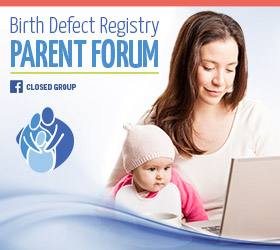How to Make Health Insurance Work for You
If your child is born or later diagnosed with birth defects or disabilities, one of the first things you should do is check your health insurance policy. The benefits in your policy may determine the quality of health care your child receives now and in the future.
If you do not have any health insurance coverage, you need to know what your options are for funding your child’s health care.
Types of Insurance
Individual: If you work for a business with fewer than twenty employees or you are self-employed, you may have an individual insurance policy. If you are already insured at the time your child is born, your child should be fully covered under an individual policy. But, if your child’s care becomes costly, your insurance may be canceled or your premiums may be raised since you are not part of a large group. If your insurance is canceled, you may have other options for health coverage depending on the state in which you live.
Group Health Insurance: Most companies with 20 or more employees offer group health insurance benefits. Since the coverage for high-cost patients is shared by all members of the group, your child may have complete coverage even for pre-existing conditions. In recent years, however, some group policies have developed categories of acceptable coverage. There may be a waiting period for coverage of pre-existing conditions or you may not be accepted for group coverage because the estimated costs of your child’s future medical care are too high.
COBRA: If your family has been covered by a group health insurance policy and you lose your job, you may still have between l8 and 36 months of continued insurance coverage. A special law called the Constitutional Omnibus Budget Reconciliation Act (COBRA) requires that all employers of 20 or more people provide continuation of insurance coverage for terminated or laid-off employees and their dependants for l8 to 36 months. COBRA requires you (the employee) to pay up to l00 percent of the insurance premium.
High Risk Insurance Pools: If you did not have any insurance coverage at the time your child was diagnosed with birth defects or disabilities, you may be able to join a “High Risk Insurance Pool.” A risk pool is a comprehensive health insurance association that has been set up by a state working with insurance carriers. Risk pools sell health insurance to people who have been denied coverage because of serious medical conditions.
To find out whether your state has high risk pool insurance available, call your state Insurance Commissioner’s office. You can find the number in the State Government blue pages section of your phone book.
Who qualifies for a High Risk Pool
To join a high risk insurance pool, an applicant must be a state resident and meet one of the following requirements (may vary by state):
- Rejected for coverage by one private insurance company (FL, IN, MT, may require two), or
- Not eligible for Medicare, or
- Received a notice of benefit reduction, or
- Had a premium increase that was more than the rate for pool coverage, or
- Had a restriction added to the policy for a pre-existing condition, or
- Suffer from certain chronic conditions such as cancer that automatically qualifies for risk pool coverage.
Although high risk insurance pools offer coverage for catastrophic medical costs, there are some disadvantages. The premiums may range into thousands of dollars for the highest risk categories. The deductibles may be as much as $2,000 annually per person. And there may be a waiting period of six months to a year before some pre-existing conditions are covered.
In difficult economic times, some states have cut off enrollment in high risk insurance pools. To find out the status of risk pools in your state, call the office of your state’s insurance commissioner.
Catastrophic Insurance Pools: Some states have created special catastrophic pools to protect families against medical expenses that may greatly exceed their income. For example, Rhode Island’s Catastrophic Health Insurance Program (CHIP) will pay for medical expenses once a certain deductible has been met based on a percentage of the applicant’s income spent on medical services. New Jersey has created the Catastrophic Illness in Children Relief Fund that assists families of children ages l8 or younger whose uncovered medical expenses exceed 30% of the family’s income up to $l00,000.
Learn more about your options
The availability of high risk insurance pools varies from state to state and may change as a state’s economy changes. Be sure to contact the insurance commissioner’s office to find out the current status of these programs in your state.
Fact Sheet by:
Birth Defect Research Children, Inc.
www.birthdefects.org







